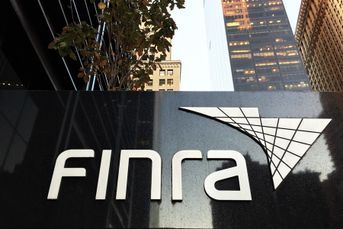Kelly: Hot new investment vehicle raises opportunities — and questions
Sponsors are cautioning reps who sell interval funds to do their homework first.
In a move that suggests opportunity tinged with risk, the $12 billion-a-year portion of the alternative investment industry that sells products only through independent broker-dealers has created a vehicle for packaging illiquid investments such as real estate investment trusts and business development companies.
Called “interval funds” because people can redeem a percentage — typically 5% — of their investment at the end of each quarter, these are 1940 Act funds, which means they have the robust disclosure of mutual funds, along with a calculation of daily net asset value.
A variety of alternative investments are at the center of the new funds’ investment strategies. Those can include real estate investments, such as traded and nontraded REITs, as well as BDCs, cash and other securities.
And therein lies the reason these interval funds, despite their heavy disclosure requirements, can become a headache for financial advisers. Funds packed with illiquid alternative investments need to be fully understood by those selling them, which is a tall order in today’s pressurized environment.
“We spend a lot of time with broker-dealers and advisers educating them how this fits in the client’s portfolio,” said Ray Lucia Jr., portfolio manager of the largest such fund — the $35 million Multi-Strategy Growth & Income Fund. “It’s an alternative investment, while others are saying it’s like a mutual fund.”
Mr. Lucia’s father, Ray Lucia, is a noted national financial planner with a daily radio show who is being investigated by the Securities and Exchange Commission for allegedly misleading people about his Buckets of Money investment strategy. Mr. Lucia said his father is not connected to the new fund, which began raising money this year.
Interval funds “are complex products,” he said. “Just because it is simpler for the adviser and client to use does not mean it’s not a complex product. Because of the fund structure, the financial advisers may be misinterpreting the product. The fear is a disconnect between a broker-dealer’s due-diligence team and communication to financial advisers.”
“The structure has been around for a couple of decades, but these products are so new that some [advisers] aren’t hearing what’s being said by sponsors,” Mr. Lucia said.
The ease of buying an interval fund does not mean it is simple to sell, even though the funds are supposed to be more liquid than nontraded REITs. “You can point, click and buy, but you can’t point, click and sell” such a fund, Mr. Lucia said. “That’s why education is so important.”
The goal for interval funds is to generate an annual yield of about 5.5% for investors. Industry executives stress that a clear benefit is that returns are not correlated to stocks and bonds.
The funds’ load charge is in the neighborhood of 5.5%, compared with the typical 7% for a nontraded REIT or BDC. In addition, because interval funds are actively managed, investors pay an annual management fee of 75 basis points.
A significant portion of the funds is invested in short-term securities for liquidity. That may crimp returns over the long term if an interval fund’s return is compared with those of either traded or nontraded REITs. But it also could protect advisers and their clients from the risk of a single alternative investment’s blowing up, industry executives said.
Anthony Chereso, chief executive of due diligence firm FactRight LLC, said he expects half a dozen such funds to be in the market by the first quarter of 2013. “These will get on regulators’ radar fairly quickly,” Mr. Chereso said. “Broker-dealers are cautious. They want to make sure that advisers understand if, and when, to sell them.”
Sponsors of nontraded REITs and other real estate funds are lining up to sell the product.
American Realty Capital, which sponsors several nontraded REITs, has one interval fund in registration, the American Realty Capital Real Estate Income Fund.
Likewise, Bluerock Real Estate LLC has an interval fund in registration, the Bluerock Total Alternatives Real Estate Fund.
The first interval fund, the Ladenburg Thalmann Alternative Strategies Fund, has $19.5 million in assets. It was launched in 2010 and is managed by Ladenburg Thalmann Asset Management Inc., which sells it through its related network of three independent broker-dealers. A spokesman for parent company Ladenburg Thalmann Financial Services Inc., Jonathan Doorley, said it would not comment about its interval fund.
Wholesalers are already on the road and hawking product at independent broker-dealers, but the funds are causing some head scratching among independent broker-dealers and, potentially, securities regulators because of their REIT and BDC holdings.
One of the big questions is whether broker-dealers will give these funds the higher scrutiny they deserve because of their core holdings of alternative investments, or simply sell them off the shelf like plain-vanilla mutual funds.
Broker-dealers need to tread carefully when considering sales of the new product. Securities regulators have fixed their sights on alternative investment offerings from independent firms.
To understand how regulators are keeping a sharp eye on sales of complex alternative products, all broker-dealer executives and registered reps have to do is consider Massachusetts’ complaint against LPL Financial LLC, issued last week. The suit alleges that the firm failed to properly train and supervise its reps to sell nontraded REITs.
Complicating matters is the fact that the advent of interval funds means brokers at broker-dealers owned by insurance companies now have access to nontraded REITs and BDCs. Thousands of those brokers possess a Series 6 registration with the Financial Industry Regulatory Authority Inc., the lowest level in the securities industry. Those brokers can sell mutual funds and variable annuities, but they are not licensed to sell individual securities or more sophisticated investments, which include nontraded REITs and BDCs.
Will brokers at such broker-dealers receive the training and education needed to sell these complex products? It would be a terrible disservice to advisers if firms did not step up training — and a potential disaster for investors.
Learn more about reprints and licensing for this article.








